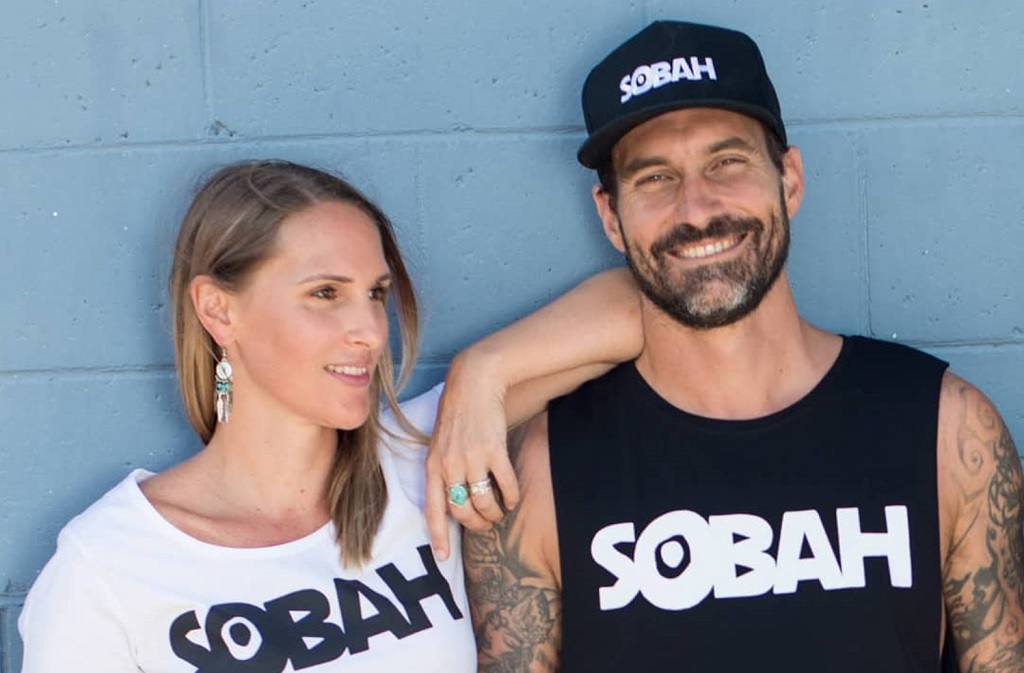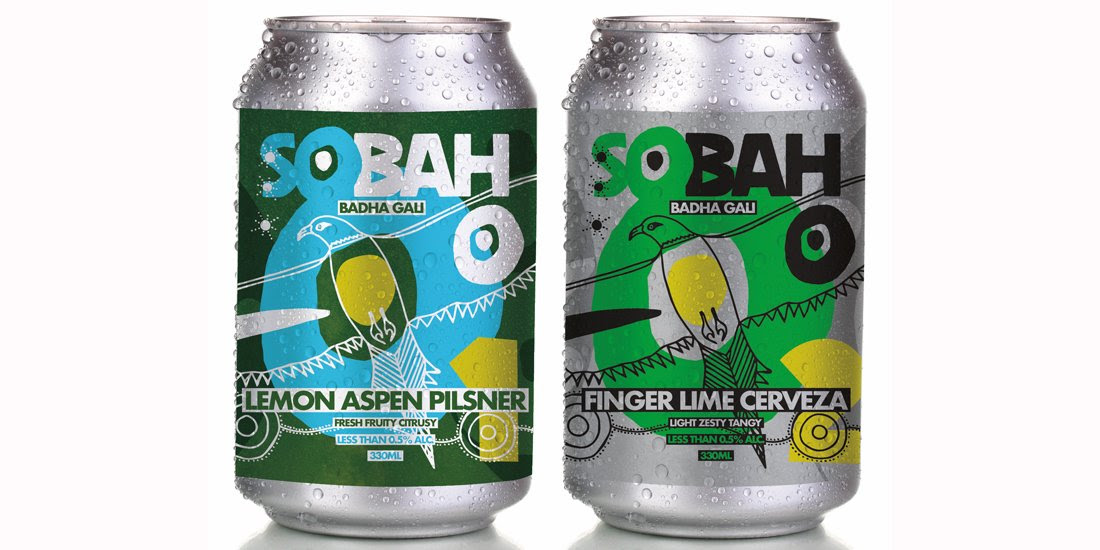
Share sale at non alcoholic Sobah boosts expansion plans
A share sale and a win at an international entrepreneur’s competition have boosted the Aboriginal-owned non-alcoholic craft beer company Sobah’s expansion plans.
The owners of Gold Coast-based Sobah have sold 8% of the business in a share sale to private investors, raising $80,000 so far and valuing the business at $1 million. Sobah’s owners have plans to decrease their share further to gain investment in the future.
The company was also made a finalist at the Duke of York’s Pitch@Palace competition for entrepreneurs which aims to help businesses accelerate their growth plans and connect them with mentors and potential investors.
Clinton Schultz, a Gamilaroi man as well as Assistant Professor of Aboriginal Health at Bond University and his wife Lozen founded the business to supplement their food truck, which offers Aboriginal-inspired foods with native ingredients and using traditional techniques.
Lozen spoke to Brews News about the learning curve the pair had been on since founding Sobah two years ago as well as the recent investment and plans for the future.
“I think we are building to sell 20% of the business, but we didn’t want to sell too much too soon. We want to be more valuable before we offer more shares,” she said.
While equity crowdfunding might have been an option, the impersonal nature of the funding didn’t feel quite right for Sobah.
“We wanted to make sure people are coming into Sobah who want to bring more into it than just money, where they might be a silent investor expecting dividends all the time. We want investors that have more to offer in some way,” Lozen said.
“We always wanted to stay independent and do it ourselves but to develop the product and upscale we needed a hell of a lot more cash flow.”

One of their investors is leaving their current role as a Sydney-based chief executive in the hospitality industry to help with day-to-day operations, potentially taking over general management while Lozen and Clinton focus on other areas of the business.
The changes to the ownership structure of the business are intended to help grow the company, which has already expanded from brewing 2,000 litres to 30,000 litres of beer per batch.
With the funding they are looking to improve cash flows for the business as well as support their expansion into export. The brewers are aiming to produce 1,000 cartons a month based on the turnover from their customer base.
Plans for the future if they get more investors include developing a microbrewery and cafe on the Gold Coast, so they can work with other indigenous businesses.
“We want to create a hub that is modern and contemporary as well as a cultural,” Lozen said.
The beginning
The inspiration for Sobah came from Clinton’s own sobriety journey, as well as Lozen’s mission to find an acceptable craft beer when she was pregnant.
“Even though there are some decent non-alcoholic beers out there, the flavour profiles don’t vary and you can get bored easily.”
Schultz said that a series of contract brewers had said that what they wanted to do, which was use traditional Aboriginal ingredients and no preservatives to create a non-alcoholic craft beer, was impossible.
They then came across the Pickled Pig Brewery in Tweed Heads.
“They were keen to give it a go and use the ingredients we wanted to use. It took a couple of batches to get to where we were happy, and we started serving it on tap in the food truck two years ago.
“People wanted to give a go, whether they were drinkers or not, and they wanted to know where they could get it.”
Secondary fermentation problems
Demand grew and they started looking at options for packaged beer, including a round of reward-based crowdfunding to tap into their community. But the journey was not an easy one, Lozen said.
“It was difficult, it has been a rocky journey. Going from having a beer you serve on tap in the keg and putting that in a can or bottle, there are so many new things you’ve got to look at.
“We don’t use preservatives or chemicals, the beer is vegan-friendly, low intervention and it was also a perishable product that needed to be kept cold.
“Cold chain distribution is hard, there’s no profit margin and it was already an expensive product to make.”
She said that Sobah had to pull the pin on sales in South Australia and Victoria because the beer was being handled too much and they couldn’t secure or afford the cold chain needed to supply the regions.
“We absorbed the cost of distribution which was probably a rookie error, but we couldn’t really add more cost to the consumer.
“We ended up going back to the drawing board last November. We had a chat amongst ourselves and had a look at what we needed to do to make the beer export-ready.”

Schultz said that distributors had already been in contact to export to different countries around the world, including the UK, US, Japan, Philippines and India, but they were turned off when they heard about the beer’s short shelf life and perishable characteristics which made it unsuitable for long journeys.
The challenge became how to make the beer stable and give it a 12-month shelf life.
“We undertook six months of R&D, and needed certain equipment to pasteurise. We wanted to pasteurise in the can because that eliminates any trace of bacteria that contributes to secondary fermentation.
“Wild yeast is a big issue because there’s skin on so many fruits where those yeasts are going to be present and if they’re not eliminated from the product, if there’s traces of it that goes into the packaging and is exposed to heat variations, it goes crazy on all those sugars in there.”
They have not been the only craft beer company that has had issues with secondary fermentation.
“It’s not rare enough that it’s not an issue. Big retailers want to change the way they retail craft beer and are urging craft brewers to pasteurise.
“For us pasteurisation is integral. We couldn’t continue running Sobah with the type of product we had,” Lozen said.
Knowing that pasteurising was the way forward for Sobah, the Schultz’s looked for a contract brewery which had the correct equipment, and they found Tribe Brewing Partners.
While still keeping product testing and research and development with Pickled Pig, their core range is now being produced on a much larger scale at Tribe’s Goulburn site in New South Wales.
The story behind the success
While it may have been a rocky road for Sobah, their growing brand awareness and the community behind them have been the keys to success, Lozen said.
“What we’ve learnt is that you’ve got to have a brand supported by a bloody good story. It’s not going to stand out from the crowd if you just have a good tasting beer, it’s about building a community and getting people to be a part of that journey.”
Part of the increasing demand for non-alcoholic beer is routed in health, she said, and not wanting to miss out on social situations.
“All these people that can’t or don’t drink, they feel they’re missing out on the camaraderie around craft beer because they don’t drink. You can still be a craft beer drinker and not drink.
“You can mix it up, and offer different flavour palettes. People love to have choices, and we want to push the boundary with non-alcoholic drinks.”



